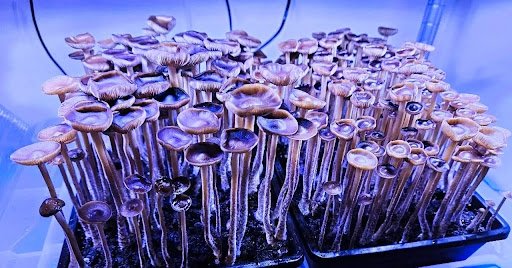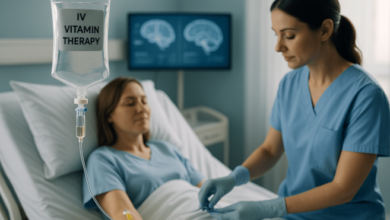Psilocybin Mushrooms: A Deep Dive into Nature’s Psychedelic

Psilocybin mushrooms, often referred to as “magic mushrooms,” have been used for centuries in spiritual, religious, and medicinal contexts. With growing interest in their potential therapeutic benefits, these fungi have moved from the fringes of culture into the spotlight of modern science and medicine. This article explores everything you need to know about psilocybin mushrooms, from their biology and history to the importance of psilocybin education in today’s world.
What Are Psilocybin Mushrooms?
Psilocybin mushrooms are a group of fungi containing the psychoactive compounds psilocybin and psilocin. When ingested, these compounds produce hallucinogenic effects that alter perception, mood, and cognition. The most well-known species include Psilocybe cubensis, Psilocybe semilanceata (Liberty Cap), and Psilocybe cyanescens.
How Do Psilocybin Mushrooms Work?
The magic behind these mushrooms lies primarily in psilocybin, which the body converts into psilocin after ingestion. Psilocin interacts with serotonin receptors in the brain, particularly the 5-HT2A receptor. This interaction disrupts normal brain activity patterns, causing altered sensory perception, changes in thought processes, and mystical experiences. The result is a psychedelic experience often described as vivid, introspective, and emotionally profound.
Historical and Cultural Significance
The use of psilocybin mushrooms dates back thousands of years. Indigenous peoples in Central and South America have incorporated these mushrooms into spiritual ceremonies and healing practices for millennia. Archaeological evidence suggests usage in rituals in Mexico as early as 5,000 years ago.
In the 1950s and 60s, Western interest surged with the work of mycologist R. Gordon Wasson and subsequent research by ethnobotanists and psychologists. These mushrooms were pivotal in the early psychedelic movement, which emphasized consciousness expansion and alternative spirituality.
The Modern Renaissance of Psilocybin Research
Therapeutic Potential
Recent decades have seen a resurgence of scientific interest in psilocybin mushrooms, especially regarding their therapeutic applications. Clinical studies have explored psilocybin-assisted therapy for conditions such as:
- Depression: Research indicates significant improvement in treatment-resistant depression after guided psilocybin sessions.
- Anxiety: Patients with terminal illnesses report reduced anxiety and existential distress.
- Post-Traumatic Stress Disorder (PTSD): Emerging studies suggest that psilocybin may help reframe traumatic memories.
- Addiction: There is promising evidence for psilocybin’s role in helping individuals overcome substance abuse, including smoking and alcoholism.
Legal and Regulatory Status
Psilocybin remains a controlled substance in many countries due to its psychoactive nature and potential for misuse. However, some regions, including parts of the United States, Canada, and the Netherlands, have decriminalized or legalized its medical use. This evolving legal landscape reflects growing acknowledgment of the substance’s potential benefits balanced against the need for responsible control.
Understanding the Psychedelic Experience
The effects of psilocybin mushrooms can vary widely based on dosage, environment, and individual mindset. A typical “trip” may last between 4 to 6 hours and includes phases such as:
- Onset: Initial effects appear 20 to 40 minutes after ingestion.
- Peak: Strong hallucinations, sensory distortions, and emotional shifts occur around 2 to 3 hours in.
- Come-down: The intensity fades gradually, and a sense of reflection or insight may persist afterward.
Users often describe a dissolution of ego boundaries, heightened sensory awareness, and spiritual or mystical insights.
The Importance of Psilocybin Education
Given the powerful nature of psilocybin mushrooms, psilocybin education is essential for anyone considering their use. Eden Direct is dedicated to educate and provide high-quality, responsibly sourced products for those interested in the potential of these unique mushrooms. Education helps to:
Promote Safe Use
Understanding dosage, set (mindset), and setting (environment) is crucial to reduce risks such as anxiety, paranoia, or “bad trips.” Educating users about these factors ensures safer experiences and minimizes potential harm.
Counteract Misinformation
Myths and misconceptions about psilocybin are common. Some view it as a dangerous hallucinogen with no medical value, while others might underestimate the potency and risks. Accurate education provides a balanced view rooted in scientific research and historical context.
Support Therapeutic Integration
For those undergoing psilocybin-assisted therapy, education is critical. Knowing what to expect and how to integrate insights gained from the experience into everyday life can significantly improve outcomes.
How Psilocybin Education is Delivered
Psilocybin education is provided through various channels, including:
- Academic Research and Publications: Universities and research institutions publish studies exploring both the risks and benefits.
- Workshops and Community Programs: Organizations offer seminars to educate the public on safe and informed use.
- Online Resources: Websites, podcasts, and social media provide accessible information.
- Therapeutic Training: Mental health professionals receive specialized training in administering and guiding psilocybin therapy.
Challenges and Future Directions
Despite growing enthusiasm, challenges remain:
- Legal Barriers: The criminalization of psilocybin limits research and access.
- Quality Control: In unregulated environments, potency and purity can vary, raising safety concerns.
- Stigma: Cultural stigma around psychedelics can hinder acceptance and open dialogue.
However, ongoing studies and policy changes indicate a promising future. The increasing focus on psilocybin education is helping to pave the way for broader acceptance and responsible use.
Conclusion
Psilocybin mushrooms hold a unique place at the crossroads of nature, medicine, and spirituality. Their potential to heal, inspire, and transform is matched by the need for respect, caution, and knowledge. By fostering comprehensive psilocybin education, society can unlock the benefits of these powerful fungi while minimizing risks. As research progresses and understanding deepens, psilocybin mushrooms may well become an important tool in the future of mental health and human consciousness exploration.



